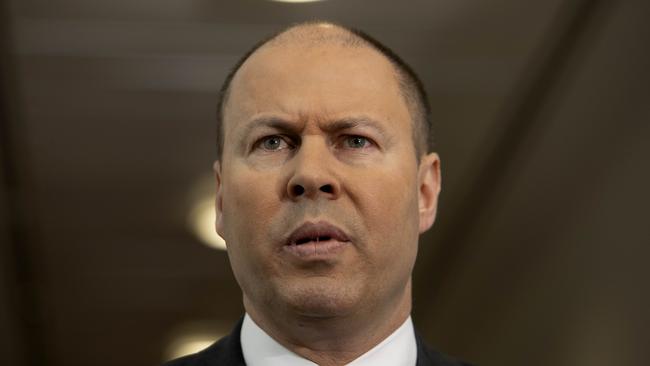Retirement Income Review: Workers to lose wages ‘if super rate rises’
Report warns workers would lose wages to subsidise the retirement of the well-off if compulsory contributions were lifted above 9.5 per cent.

Average workers would lose wages to subsidise the retirement funds of the well-off if compulsory superannuation contributions were lifted beyond the 9.5 per cent rate, a report on the retirement income system says.
The review to be released on Friday was highly critical of any moves to raise compulsory employer contributions from the current 9.5 per cent, saying the “working-life income” for most Australians would be 2 per cent higher if the superannuation guarantee wasn’t lifted.
The Australian revealed on Thursday that the Morrison government would delay any decision on whether it will seek to scrap or delay next year’s scheduled rise in the compulsory superannuation contribution until the May budget.
The Retirement Income Review, on which the government has been sitting for several months, backed the case for scrapping increases to the super guarantee, saying it would favour the wealthy despite Labor’s calls for the increase to go ahead.
“A rate of compulsory superannuation that would result in people having an increase in their living standards in retirement may involve an unacceptable reduction in living standards prior to retirement, particularly for lower-income earners,” it said.
“The … evidence suggests the majority of increases in the super guarantee come at the expense of growth in take-home wages.
“If the superannuation guarantee stayed at 9.5 per cent rather than increasing to 12 per cent, they would also have higher incomes during their working life.
“Maintaining the super guarantee rate at 9.5 per cent would allow for higher living standards in working life.
“Working-life income for most people would be around 2 per cent higher in the longer run. If the super guarantee remained at 9.5 per cent and retirement savings were used more efficiently, most people would achieve 65-75 per cent replacement rates.
“Most would also achieve higher replacement rates than with the super guarantee at 12 per cent and drawing down balances at the legislated minimum rate.”
The review found that, overall, while the retirement income system — comprising superannuation, the Age Pension and household savings and home ownership — was sustainable for the next 40 years, changes could be made to reduce reliance on superannuation.
The cost of the retirement income system was projected to grow from 4.6 per cent of GDP in 2020 to 5 per cent by 2060.
The review found that the Age Pension had outstripped wage growth since 2009 and acted as a sufficient mechanism to reduce income inequality.
Josh Frydenberg announced a review into the retirement income system in September 2019 to be chaired by former Treasury official Mike Callaghan, with finance experts Carolyn Kay and Deborah Ralston panel members.
The Australian understands the government will not respond to the review, which makes no clear recommendations, but will consider its contents before making policy decisions.
Putting off a decision until the May budget will still allow the government to act before the super guarantee is due to rise to 10 per cent on July 1, 2021.
The report also backs the use of early access policy for superannuation during the pandemic and refuted super industry claims of how much it would impact the retirement savings of workers.




To join the conversation, please log in. Don't have an account? Register
Join the conversation, you are commenting as Logout